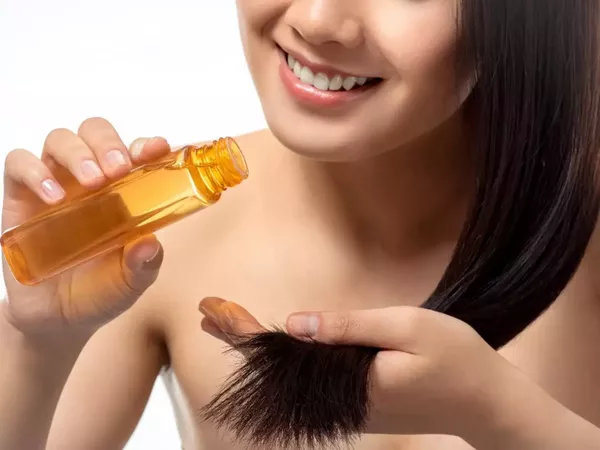Having healthy and lustrous hair is a common desire for many individuals. While genetics play a role in determining hair quality, there are several proactive steps one can take to improve and maintain the overall health of their tresses. This article explores various factors that contribute to enhancing hair quality and offers practical tips to achieve and sustain beautiful locks.
1. Nutrition for Healthy Hair:
A balanced and nutritious diet is the foundation for healthy hair. Incorporate protein-rich foods like lean meats, fish, eggs, legumes, and nuts, as hair is primarily composed of a protein called keratin. Additionally, consume foods rich in vitamins A, C, D, E, and minerals like zinc and iron to support hair growth and prevent deficiencies that can lead to hair issues.
2. Hydration – A Vital Element:
Staying adequately hydrated is essential for overall health, and it directly impacts hair quality. Dehydration can lead to dry, brittle hair, so ensure you drink enough water throughout the day to keep your tresses hydrated and vibrant.
3. Embrace a Gentle Haircare Routine:
Be mindful of the products you use on your hair. Opt for sulfate-free, gentle shampoos and conditioners that suit your hair type. Avoid over-washing, as it can strip the hair of its natural oils, leading to dryness. Regularly massaging the scalp during washing stimulates blood circulation, promoting hair growth.
4. Condition and Moisturize Regularly:
After shampooing, use a nourishing conditioner to replenish lost moisture and lock it in. Consider deep-conditioning treatments once a week to provide your hair with extra hydration and repair damaged strands.
5. Avoid Heat Styling and Overexposure to the Sun:
Excessive use of heat styling tools can cause significant damage to your hair. Minimize the use of blow dryers, straighteners, and curling irons, or use them on the lowest heat setting along with a heat protectant spray. Similarly, protect your hair from the sun’s harmful UV rays by wearing a hat or using hair products with built-in UV protection.
6. Regular Trimming for Healthy Ends:
Trimming your hair every 6-8 weeks prevents split ends from traveling up the hair shaft and helps maintain a neat appearance. Regular trims also promote healthy hair growth by removing damaged ends.
7. Choose the Right Hairbrush:
Use a wide-toothed comb or a brush with soft, natural bristles to detangle your hair gently. Avoid aggressive brushing, especially when your hair is wet, to prevent breakage.
8. Deep Conditioning with Natural Oils:
Incorporate natural oils like coconut, almond, jojoba, or argan oil into your hair care routine. These oils provide deep conditioning, nourishment, and shine to your locks. Apply the oil to damp hair, leave it on for a few hours or overnight, and then wash it off with a gentle shampoo.
9. Protect Hair from Chlorine and Saltwater:
Before swimming in chlorinated pools or the ocean, wet your hair thoroughly and apply a leave-in conditioner. This helps protect your hair from the damaging effects of chlorine and saltwater.
10. Manage Stress for Better Hair Health:
Chronic stress can lead to hair problems like excessive shedding and hair loss. Engaging in stress-relief activities such as meditation, yoga, or regular exercise can significantly improve hair quality.
11. Get Enough Sleep:
Adequate sleep is crucial for overall health and well-being, including hair health. During sleep, the body repairs and regenerates, promoting healthy hair growth.
12. Limit Chemical Treatments:
Frequent use of chemical treatments like hair dye, perms, and relaxers can weaken the hair structure. If possible, opt for natural alternatives or take breaks between treatments to allow your hair to recover.
13. Choose Silk or Satin Pillowcases:
Sleeping on silk or satin pillowcases reduces friction and helps prevent hair breakage and tangling.
14. Avoid Tight Hairstyles:
Wearing tight hairstyles like ponytails, braids, or buns frequently can lead to hair breakage and damage. Let your hair down and opt for looser styles whenever possible.
15. Consult a Professional:
If you experience persistent hair problems or significant changes in hair quality, it’s essential to consult a dermatologist or a trichologist. They can identify underlying issues and provide appropriate guidance and treatment.
Conclusion:
Improving hair quality involves a combination of lifestyle changes, proper hair care, and a nourishing diet. By adopting a gentle haircare routine, protecting your tresses from environmental stressors, and incorporating healthy habits into your lifestyle, you can achieve and maintain beautiful, luscious locks. Remember, consistency is key, and with patience and dedication, you can enjoy the benefits of healthy, vibrant hair that enhances your natural beauty and boosts your self-confidence.

